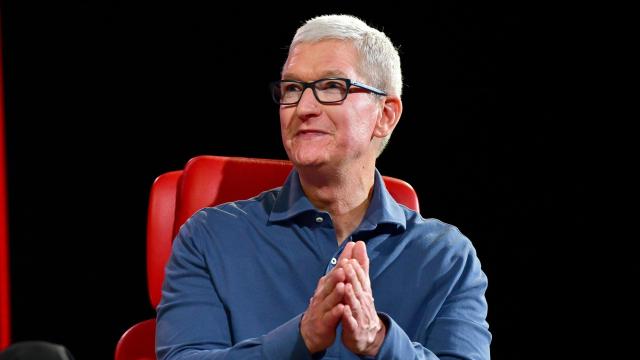Apple has learned from enough games of Monopoly that it’s good to be the banker as well as a player. A Monday report from Forbes based on anonymous internal sources claims users deposited close to $US1 billion in just four days after Apple introduced its new Goldman Sachs-backed Apple Card savings account.
While the company had previously seen success with its mobile payments platform, the new savings account is already doing gangbusters. After the Cupertino tech giant launched its new high yield savings account last month, the company saw $US990 million in deposits in less than a week, per Forbes’ sources. In that time, 240,000 accounts signed up for the service. New savings accounts cannot exceed $US250,000 per the Federal Deposit Insurance Corporation’s insurance limits. If the Forbes reporting is true, then users are depositing several thousand dollars into their new accounts, on average.
Gizmodo reached out to Apple for comment and for any official stats on its savings account users, but we did not immediately hear back. The numbers represent Apple setting itself up as a major fintech player, practically overnight. Considering how parts of Apple’s laptop business haven’t been doing too well so far in 2023, we may hear more from Apple about its savings account when it shares its latest quarterly report Wednesday.
The user and deposit numbers could be because the user’s daily cash rewards are now automatically applied to their savings accounts rather than their Apple cash prepaid cards. Still, considering Goldman Sachs’ own high yield savings account through its consumer banking division, Marcus, offers just 3.9% annual yield, Apple has positioned itself well above most other similar accounts.
How much of this is linked to the wide proliferation of iPhones, or to the savings account’s 4.15% annual interest rate (when the national average rate is just .24% according to Bankrate), or to Apple fans’ willingness to buy anything from the Cupertino tech company short of a Tim Cook body pillow? It’s probably all of the above.
Apple’s credit card boasts no annual or late fees, though considering how users need to own an iPhone using iOS 12.4 or later and an Apple ID with an associated iCloud account “in good standing,” Apple’s savings account is far more restrictive than some other banks and is geared specifically toward diehard Apple users. User’s total APR also heavily depends on credit history, varying from around 16% to 27%.
There really are few savings accounts offering yields above 4%. The few banks offering similar or better yield rates, like Bask Bank’s 4.75%, don’t have Apple customers’ loyalty, nor permanent access to iPhone users. Part of the reason for Apple’s short-term success may be due to timing. As Forbes pointed out, rising interest rates have caused havoc at some banks. The Fed recently admitted some of its policies were part of the series of events that led to the fall of Silicon Valley Bank.
Still, if Apple wants to continue capitalising on its walled gardens with its fintech brand, it may put itself in antitrust snipers’ scopes. Its adtech business and its app store have already come under fire from regulators in Europe. It doesn’t take much to see other banks and companies offering savings accounts growing jealous of Apple’s zealous and captive audience.
